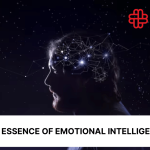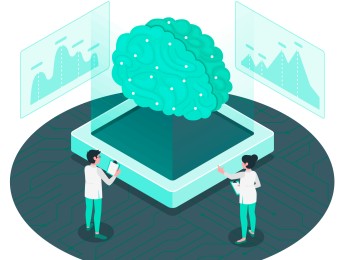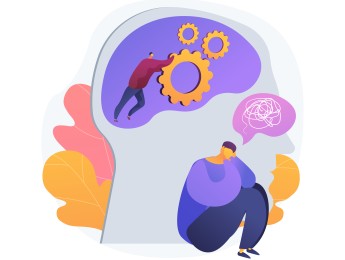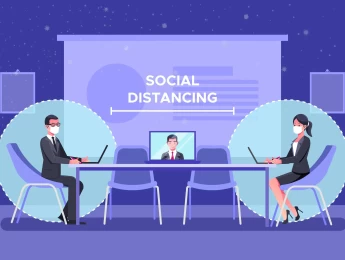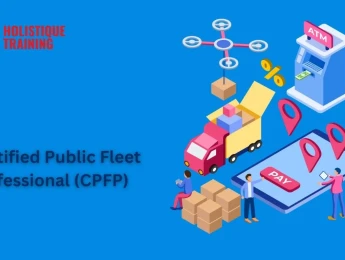Mental health has long been stigmatised within society and especially the workplace. However, it is now becoming much more acceptable to discuss mental health and people no longer view it as a taboo subject.
Addressing mental health in the workplace can be a challenge for some, especially those suffering from mental health issues and conditions. It is the responsibility of the employer to create an environment that feels calm and safe. The employer should also be aware of triggers to mental health issues, one primarily being stress, and take necessary steps to minimise these through various methods.
It is also essential for everyone within the workplace to understand mental health issues and their symptoms. Recognising when colleagues are in crisis, approaching them, and offering a shoulder to cry on can greatly improve their mood and encourage them to seek out further professional support.
Upon completion of this course, participants will be able to:
- Understand the vitality of managing mental health within the workplace.
- Comprehend the five core principles of mental health first aid and how they work in practice.
- Describe common mental health conditions and their signs and symptoms.
- Understand how symptoms of mental health conditions may present differently in people.
- Utilise various methods and techniques to communicate with others and open up conversations relating to mental health.
- Communicate clearly and empathetically with those believed to be struggling or in crisis.
- Explore ways to guide individuals and colleagues towards seeking professional help.
This course is designed for anyone within the workplace who wishes to develop their knowledge surrounding mental health, particularly those in leadership roles who want to provide better support for employees. It would be most beneficial for:
- Operations Managers
- Senior Executives
- HR Personnel
- Project Managers
- Mental Health First Aiders
- Occupational Health and Safety Officers
- Coaching and Development Directors
This course uses a variety of adult learning styles to aid full understanding and comprehension. Participants will review video examples of potential mental health crises to discuss and conclude on the ideal methods of approaching the issues and communicating concern with the individual.
They will partake in a variety of learning exercises including presentations, group discussions and role-playing activities. This combination of learning methods allows the participants to fully develop their understanding of the content and work with one another to practise and demonstrate the related practical skills.
Day 5 of each course is reserved for a Q&A session, which may occur off-site. For 10-day courses, this also applies to day 10
Section 1: Introduction to Mental Health
- Defining what mental health is and why it is important to understand.
- Exploring the stigma of mental health and how to break it.
- Investigating the history of how mental health was addressed and how our knowledge surrounding it has evolved.
- Understanding people’s reservations surrounding talking about mental health and exploring ways to get through that barrier.
- Evaluating how the workplace can contribute to mental health in both positive and negative ways.
Section 2: Mental Health Conditions
- Identifying the most common mental health issues – anxiety, depression, stress and more.
- Recognising when temporary mental health issues are developing into permanent conditions.
- The various symptoms of common mental health conditions and how to recognise them.
- Acknowledging the more complex and less common issues, their symptoms and how to bring awareness in a safe manner.
Section 3: Providing Support to Colleagues
- Utilising different methods of communication to start a conversation about mental health.
- Communicating with those in need using an empathetic voice, open body language and understanding.
- Knowing when best to listen and ask questions regarding people’s mental health.
- Maintaining confidentiality to build trust with one another.
- Offering reassurance and emotional support, potentially referring to appropriate professional health.
Section 4: Stress Reduction
- As an employer, offering activities in the workplace to reduce stress and promote a safer and calmer environment.
- Offering rewards for outstanding work.
- Organising mental health professionals to come in and offer sessions to those in need.
- Engaging with employees to gain an understanding of their mental state and create plans to address and resolve their issues.
Section 5: Crisis Management
- Recognising extreme symptoms in colleagues or employees – extreme change in mood, giving away possessions, avoiding social activities and more.
- Breaking confidentiality when there is a genuine cause for concern.
- Reporting concerns to the correct personnel.
- Approaching those potentially in crisis to bring them to a safe environment where they can disclose their situation.
Upon successful completion of this training course, delegates will be awarded a Holistique Training Certificate of Completion. For those who attend and complete the online training course, a Holistique Training e-Certificate will be provided.
Holistique Training Certificates are accredited by the British Assessment Council (BAC) and The CPD Certification Service (CPD), and are certified under ISO 9001, ISO 21001, and ISO 29993 standards.
CPD credits for this course are granted by our Certificates and will be reflected on the Holistique Training Certificate of Completion. In accordance with the standards of The CPD Certification Service, one CPD credit is awarded per hour of course attendance. A maximum of 50 CPD credits can be claimed for any single course we currently offer.
- Course Code IND05-127
- Course Format Classroom, Online,
- Duration 5 days


